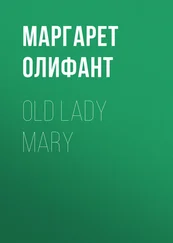Маргарет Олифант - Brownlows
Здесь есть возможность читать онлайн «Маргарет Олифант - Brownlows» — ознакомительный отрывок электронной книги совершенно бесплатно, а после прочтения отрывка купить полную версию. В некоторых случаях можно слушать аудио, скачать через торрент в формате fb2 и присутствует краткое содержание. Жанр: foreign_prose, literature_19, foreign_antique, на английском языке. Описание произведения, (предисловие) а так же отзывы посетителей доступны на портале библиотеки ЛибКат.
- Название:Brownlows
- Автор:
- Жанр:
- Год:неизвестен
- ISBN:нет данных
- Рейтинг книги:5 / 5. Голосов: 1
-
Избранное:Добавить в избранное
- Отзывы:
-
Ваша оценка:
- 100
- 1
- 2
- 3
- 4
- 5
Brownlows: краткое содержание, описание и аннотация
Предлагаем к чтению аннотацию, описание, краткое содержание или предисловие (зависит от того, что написал сам автор книги «Brownlows»). Если вы не нашли необходимую информацию о книге — напишите в комментариях, мы постараемся отыскать её.
Brownlows — читать онлайн ознакомительный отрывок
Ниже представлен текст книги, разбитый по страницам. Система сохранения места последней прочитанной страницы, позволяет с удобством читать онлайн бесплатно книгу «Brownlows», без необходимости каждый раз заново искать на чём Вы остановились. Поставьте закладку, и сможете в любой момент перейти на страницу, на которой закончили чтение.
Интервал:
Закладка:
When they went away Sara betook herself to her own business. She saw the cook in the most correct and exemplary way. Fortunately the cook was also the housekeeper, and a very good-tempered woman, who received all her young mistress’s suggestions with amiability, and only complained sometimes that Miss Brownlow would order every thing that was out of season. “Not for the sake of extravagance,” Mrs. Stock said, in answer to Sara’s maid, who had made that impertinent suggestion; “oh, no, nothin’ of the sort—only out of always forgettin’, poor dear, and always wantin’ me to believe as she knows.” But as Sara fortunately paid but little attention to the dinner when produced, making no particular criticism—not for want of will, but for want of knowledge—her interview with the cook at least did no harm. And then she went into many small matters which she thought were of importance. She had an hour’s talk, for instance, with the gardener, who was, like most gardeners, a little pig-headed, and fond of having his own way; and Sara was rather of opinion that some of her hints had done him good; and she made him, very unwillingly, cut some flowers for her to take to her grandmother. Mrs. Fennell was not a woman to care for flowers if she could have got them for the plucking; but expensive hothouse flowers in the depth of winter were a different matter. Thus Sara reasoned as she carried them in her basket, with a ground-work of moss beneath to keep them fresh, and left them in the hall till the carriage should come round. And she went to the stables, and looked at every thing in a dainty way—not like your true enthusiast in such matters, but with a certain gentle grandeur, as of a creature to whom satin-skinned cattle and busy grooms were vulgar essentials of life, equally necessary, but equally far off from her supreme altitude. She cared no more for the grays in themselves than she did for Dick and Tom, which will be sufficient to prove to any body learned in such matters how imperfect her development was in this respect. All these little occupations were very different from the occupations of her father and brother, who were both of them in the office all day busy with other people’s wills and marriage-settlements and conveyances. Thus it would have been as evident to any impartial looker-on as it was to Mr. Brownlow, that the fortune which had so much changed his position in the county, and given him such very different surroundings, all centered in, and was appropriated to, his daughter, while his old life, his hereditary business, the prose and plain part of his existence, was to be carried out in his son.
When all the varieties of occupation in this useful day were about exhausted, Sara prepared for her drive. She wrapped herself up in fur and velvet, and every thing that was warmest and softest and most luxurious; and with her basket of flowers and another little basket of game, which she did not take any personal charge of, rolled away out of the park gates to Masterton. Brownlows had belonged to a very unsuccessful race before it came to be Brownlow’s. It had been in the hands of poor, failing, incompetent people, which was, perhaps, the reason why its original name had dropped so completely out of recollection. Now, for the first time in its existence, it looked really like “a gentleman’s place.” But yet there were eye-sores about. One of these was a block of red brick, which stood exactly opposite the park gates, opposite the lodge which Mr. Brownlow had made so pretty. There were only two cottages in the block, and they were very unpretending and very clean, and made the life of the woman in the lodge twice as lightsome and agreeable; but to Sara’s eyes at least, Swayne’s Cottages, as they were called, were very objectionable. They were two-storied houses, with windows and doors very flush with the walls; as if, which indeed was the case, the walls themselves were of the slightest construction possible; and Swayne himself, or rather Mrs. Swayne, who was the true head of the house, let a parlor and bedroom to lodgers who wanted country air and quiet at a cheap rate. “Any body might come,” Sara was in the habit of saying; “your worst enemy might come and sit down there at your very door, and spy upon every thing you were doing. It makes me shudder when I think of it.” Thus she had spoken ever since her father’s entrance upon the glories of his “place,” egging him up with all her might to attack this little Naboth’s vineyard. But there never was a Naboth more obstinate in his rights than Mr. Swayne, who was a carpenter and builder, and had put the two houses together himself, and was proud of them; and Sara was then too young and too much under the sway of her feelings to take upon her in cold blood Jezebel’s decisive part.
She could not help looking at them to-day as she swept out, with the two grays spurning the gravel under foot, and the lodge-woman at the gate looking up with awe while she made her courtesy as if to the queen. Mrs. Swayne, too, was standing at her door, but she did not courtesy to Sara. She stood and looked as if she did not care—the splendor and the luxury were nothing to her. She looked out in a calm sort of indifferent way, which was to Sara what, to continue a scriptural symbolism, Mordecai was to another less fortunate personage. And Mrs. Swayne had a ticket of “Lodgings” in her window. It could do her no good, for nobody ever passed along that road who could be desirous of country lodgings at a cheap rate, and this advertisement looked to Sara like an intentional insult. The wretched woman might get about eight shillings a week for her lodgings, and for that paltry sum she could allow herself to post up bills opposite the very gate of Brownlows; but then some people have so little feeling. This trifling incident occupied Sara’s mind during at least half her drive. The last lodger had been a consumptive patient, whose pale looks had filled her with compassionate impulses, against which her dislike of Mrs. Swayne contended vainly. Who would it be next? Some other invalid most likely, as pale and as poor, to make one discontented with the world and ashamed of one’s self the moment one issued forth from the park gates, and all because of the determination of the Swaynes to annoy their wealthy neighbors. The thought made Sara angry as she drove along; but it was a brisk winter afternoon, with frost in the air, and the hoofs of the grays rang on the road, and even the country waggons seemed to move along at an exhilarated pace. So Sara thought, who was young, and whose blood ran quickly in her veins, and who was wrapped up to the throat in velvet and fur. Now and then another carriage would roll past, when there were people who nodded or kissed their hands to Sara as they passed, with all that clang of hoofs and sweep of motion, merrily on over the hard road beneath the naked trees. And the people who were walking walked briskly, as if the blood was racing in their veins too, and rushing warm and vigorous to healthy cheeks. If any cheeks were blue rather than red, if any hearts were sick with the cold and the weary way, if any body she met chanced to be going heavily home to a hearth where there was no fire, or a house from which love and light had gone, Sara, glowing to the wind, knew nothing of that; and that the thought never entered her mind was no fault of hers.
The winter sky was beginning to dress itself in all the glories of sunset when she got to Masterton. It had come to be the time of the year when the sun set in the rectory garden, and John Brownlow’s windows in the High Street got all aglow. Perhaps it brought associations to his mind as the dazzling red radiance flashed in at the office window, and he laid down his pen. But the fact was that this pause was caused by a sound of wheels echoing along the market-place, which was close by. That must be Sara. Such was the thought that passed through Mr. Brownlow’s mind. He did not think, as the last gleam came over him, how he used to look up and see Bessie passing—that Bessie who had come to be his wife—nor of any other moving event that had happened to him when the sun was coming in at his windows aslant in that undeniable way. No; all that he thought was, There goes Sara; and his face softened, and he began to put his papers together. The child in her living importance, little lady and sovereign of all that surrounded her, triumphed thus even over the past and the dead.
Читать дальшеИнтервал:
Закладка:
Похожие книги на «Brownlows»
Представляем Вашему вниманию похожие книги на «Brownlows» списком для выбора. Мы отобрали схожую по названию и смыслу литературу в надежде предоставить читателям больше вариантов отыскать новые, интересные, ещё непрочитанные произведения.
Обсуждение, отзывы о книге «Brownlows» и просто собственные мнения читателей. Оставьте ваши комментарии, напишите, что Вы думаете о произведении, его смысле или главных героях. Укажите что конкретно понравилось, а что нет, и почему Вы так считаете.












